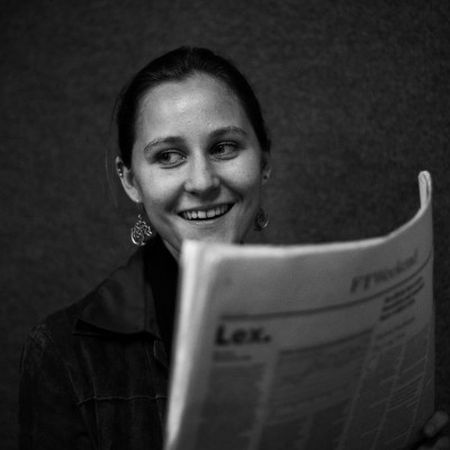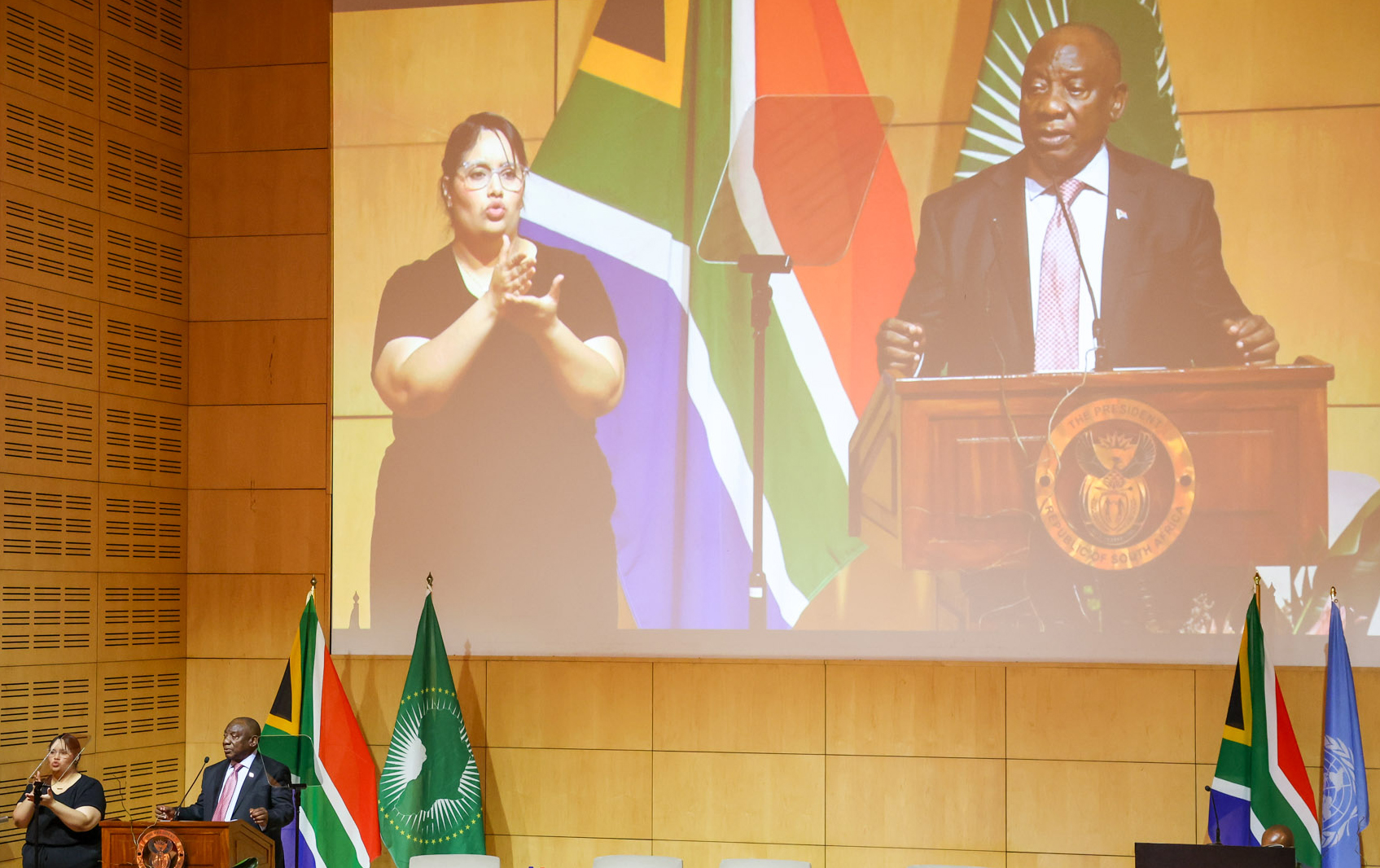President Cyril Ramaphosa has warned that national and global progress towards achieving goals aligned with social justice remained “way off the mark”. He noted that when it came to South Africa’s National Development Plan (NDP) 2030, there was still a wide gap between ambitions and delivery in critical areas, “despite considerable gains”.
Referring to the United Nations (UN) Sustainable Development Goals, Ramaphosa raised concerns about failures to meet targets and regressions in key areas around the world, echoing statements made by UN Secretary-General António Guterres.
“In both instances, there have been recommendations of urgent course correction… While the NDP’s vision is deeply rooted in social justice, its implementation has faced a number of challenges, highlighting the gap between policy and practice,” he said.
Ramaphosa was speaking at the 7th Annual Social Justice Summit, hosted by the Stellenbosch University Centre for Social Justice at the Cape Town International Convention Centre on Friday, 17 October 2025. The event centred around the themes of food security and peace.
He was joined by the director of the Stellenbosch University Centre for Social Justice, Professor Thuli Madonsela; Western Cape Premier Alan Winde; resident coordinator of the UN in South Africa, Nelson Muffuh; and Minister of Public Service and Administration Mzamo Buthelezi, among others.
Ramaphosa’s address at the summit comes as South Africa holds the G20 presidency. He said that the G20 ministerial Food Security Task Force Declaration, which affirms the fundamental right to food and calls on all nations to share the responsibility of building resilient and sustainable food systems, would be taken to the G20 Leaders’ Summit convening heads of states in November.
Hard-won gains
Statistics showed that many people continue to experience inadequate access to food in South Africa, with severe, acute malnutrition remaining a challenge, according to Ramaphosa.
“It is most worrying when we continue to hear that malnutrition is increasing in a number of areas in our country, [such as the] Eastern Cape... At the same time, we’ve embarked on one of the biggest social welfare programmes on our continent, spending up to 61% of our budget... [on] social welfare for 62 million people,” he said.
He noted that despite a range of interventions implemented by various departments, particularly the departments of health and social development, cases of malnutrition in children under five had increased by about 26% over the past five years.
/file/dailymaverick/wp-content/uploads/2025/10/PHOTO-2025-10-17-11-58-20.jpg)
Ramaphosa laid out a number of interventions the state was pursuing to address problems of hunger and food insecurity in the country, including the reform of policy and legal frameworks such as the Integrated Food Security Strategy, the National Food and Nutrition Security Plan and the Nutrition Policy Implementation Plan.
He lauded gains made in the delivery of food through the National School Nutrition Programme, which he described as “impactful” and an “outlier” on the African continent. He said that the programme had expanded from one to two meals per child each school day, reaching 9.7-million children across the country. However, he acknowledged that more needed to be done to improve food security for young people outside of school hours.
Among other state strategies that Ramaphosa highlighted for addressing food insecurity were:
- Provincially managed programmes for food production, which provided resources for people to produce food in their backyards.
- The prioritisation of nutrition at a primary healthcare level through initiatives such as breastfeeding promotion, micronutrient supplementation for pregnant women and the national obesity strategy.
- Leveraging income and livelihood support mechanisms to enable households to access decent nutrition through the social grant system.
- Leveraging fiscal and market-based measures to improve food affordability, through measures such as implementing a zero-rated basic food basket for low-income households.
“The Medium-Term Development Plan that we have adopted is clear that food security is central to reducing poverty, improving human development and ensuring that there is social justice. Its first target is to reduce the proportion of South Africans living below the food poverty line from 30.9% in 2022 to 25% by 2029. Secondly, it is to reduce the number of individuals vulnerable to hunger from 5.4-million to below 2.9-million over the same period,” said Ramaphosa.
Ramaphosa described local food retailers as “second to none” when it came to their architecture for food distribution, but called on companies to do more when it came to ensuring affordable food prices.
“They’re making billions and billions in profits… We want to call on them to look at the prices that they charge for food at the till... and to look at the high margins that they have... They are the ones who drive the high food prices, and they are the ones who must join us in taking action to reduce food prices,” he said.
Fighting for change
Madonsela highlighted the many threats to peace in her address, including crime, corruption, gender-based violence and climate change.
“Hunger, too, is a driver of conflict and ultimately war,” she said.
Hunger was not an accident of history, but a product of human action and inaction, emphasised Madonsela. She described it as not only a moral issue, but also a matter of legality and sustainability.
“To tackle hunger is not a matter for the government; it’s a matter for us too,” she said.
Madonsela advocated for a law anchored in General Comment 12 of the UN’s Committee on Economic, Social and Cultural Rights, which requires a system that ensures the right to food is respected by “every human being”.
She also called for an end to impunity for both “internal violations” of law and violations of international law.
“We all have to play our part... In the absence of justice, we cannot have peace… To ensure that we have lasting peace, we should all join hands to support anti-hunger initiatives, climate resilience initiatives, but ultimately, to ensure that wherever we are, we are holders of hope for social justice,” said Madonsela.
The SU Centre for Social Justice champions the Musa Plan for Social Justice, an accelerator programme seeking to end poverty and “break the back” of structural inequality by 2030. Its four key result areas include fostering law and policy resonance with social justice objectives; cultivating social accountability and cohesion; resource mobilisation; and strengthening democratic leadership and state capacity. DM





 President Cyril Ramaphosa delivers the keynote address at the 7th Social Justice Summit held at the Cape Town International Convention Centre on 17 October 2025. (Photo: Jairus Mmutle / GCIS)
President Cyril Ramaphosa delivers the keynote address at the 7th Social Justice Summit held at the Cape Town International Convention Centre on 17 October 2025. (Photo: Jairus Mmutle / GCIS)